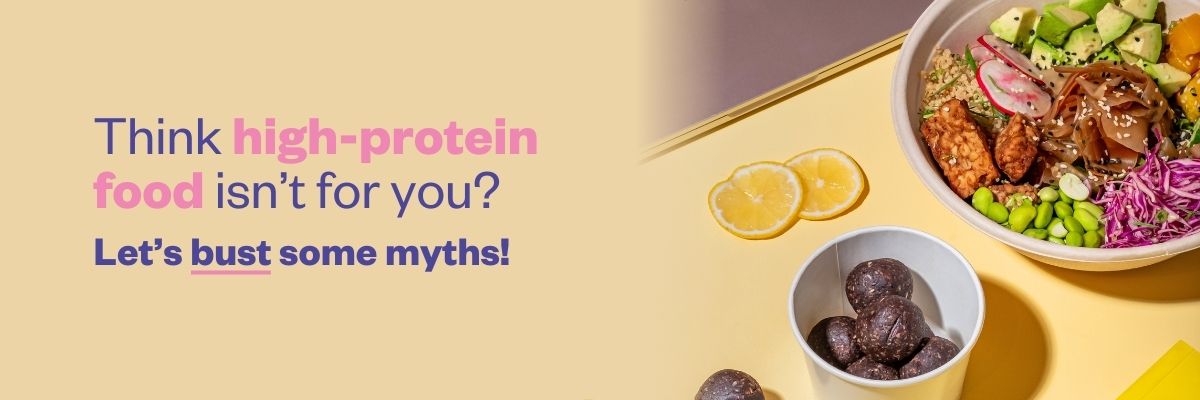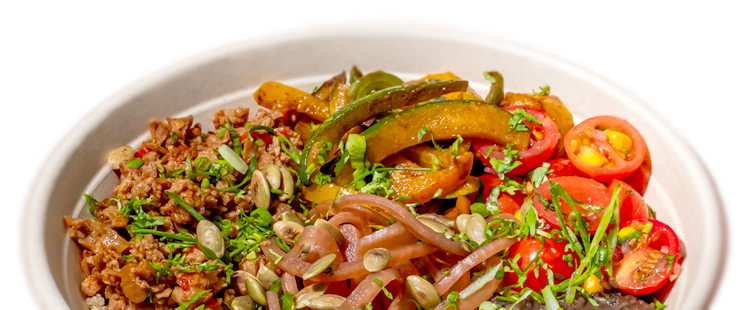High-protein foods have gained popularity for their role in muscle building, weight management, and overall health.
However, many misconceptions still surround them, causing some people to avoid them altogether. Whether you think high-protein diets are only for athletes or that they may harm your health, it’s time to set the record straight. Let’s bust some of the most common myths about high-protein food!
Myth #1: High-Protein diets are only for bodybuilders
Reality: While protein is essential for muscle growth and repair, it’s not just for athletes or bodybuilders. Everyone needs protein to support bodily functions such as enzyme production, immune system health, and tissue repair. Whether you’re an office worker, a parent, or a fitness enthusiast, getting enough protein is crucial for your overall well-being. Additionally, protein is essential for maintaining healthy hair, skin, and nails, making it an important nutrient for beauty and wellness as well. You can learn why everyone needs protein in their diet.
Myth #2: Eating too much protein is bad for your kidneys
Reality: There is no scientific evidence that high-protein diets cause kidney damage in healthy individuals. This myth likely stems from medical advice given to people with pre-existing kidney disease, who may need to monitor their protein intake. For healthy individuals, consuming protein from a variety of sources is beneficial and supports metabolic functions. Studies suggest that moderate to high protein intake can even contribute to better metabolic health, improving insulin sensitivity and reducing the risk of type 2 diabetes. Check out this Harvard Health article on high-protein diets and kidney health.
Myth #3: Plant-Based proteins are inferior to animal proteins
Reality: While animal proteins contain all essential amino acids, plant-based proteins can also provide complete nutrition when combined correctly. Foods like quinoa, soy, lentils, and chickpeas offer excellent protein sources. A well-planned plant-based diet can meet all your protein needs without relying on animal products. Furthermore, plant-based protein sources often come with additional health benefits such as fiber, antioxidants, and lower saturated fat levels, which can support heart health and digestion. Discover the best plant-based protein sources for a healthy diet.
Myth #4: High-Protein diets lead to weight gain
Reality: Protein can actually support weight management by promoting satiety, reducing cravings, and preserving lean muscle mass. Unlike processed carbohydrates, high-protein foods help keep blood sugar levels stable and can aid in weight loss when paired with a balanced diet. Research shows that a diet rich in protein can help prevent overeating by increasing feelings of fullness, leading to reduced calorie intake over time. Protein also has a higher thermic effect, meaning your body burns more calories digesting it compared to fats or carbohydrates. Learn how protein aids in weight loss.
Myth #5: You need protein shakes to meet your daily needs
Reality: While protein shakes are a convenient option, they are not the only way to reach your daily protein intake. Whole foods like beans and nuts provide natural, nutrient-dense protein sources. Supplements can be useful for those with specific dietary needs, but they are not a necessity for a healthy diet. Preparing balanced meals with a mix of protein, healthy fats, and fiber can be a better long-term approach to nutrition. Read more about natural protein sources.
Myth #6: More protein always means more muscle
Reality: While protein is crucial for muscle growth, simply increasing protein intake will not automatically lead to bigger muscles. Muscle gain requires a combination of sufficient protein intake, strength training, and adequate recovery time. Excess protein that is not used for muscle repair and energy may be stored as fat. Therefore, it’s important to balance protein intake with your activity level and overall dietary needs. Here’s a guide on how much protein you really need.
Myth #7: High-Protein diets are hard to follow
Reality: Many people assume that eating a high-protein diet means only consuming different products or protein powders. However, there are plenty of diverse and delicious high-protein foods that fit into any lifestyle. From plant-based options like tofu and tempeh to seafood, and legumes, there are countless ways to incorporate protein into your meals. Meal planning and trying new recipes can make maintaining a high-protein diet easy and enjoyable. Here are some simple high-protein meal ideas to get started.
How Groove supports your High-Protein needs
At Groove, we understand the importance of high-quality protein in your diet. That’s why we offer delicious, nutrient-packed, high-protein food options to fit any lifestyle. Whether you’re looking for plant-based protein snacks, meal replacements, or performance-boosting nutrition, we’ve got you covered!
Our products are designed to make it easier than ever to enjoy protein-rich foods without sacrificing taste or convenience.
Conclusion
High-protein foods are for everyone, not just bodybuilders or athletes. By debunking these common myths, we can embrace a balanced approach to nutrition that supports energy, weight management, and overall health. Understanding the benefits of protein and how to incorporate it into your diet can help you make more informed choices about your health and wellness.
Next time you hear one of these myths, you’ll be ready to separate fact from fiction!


